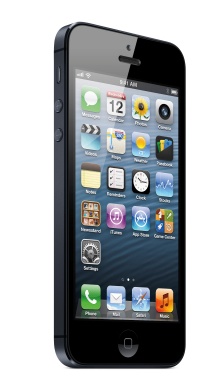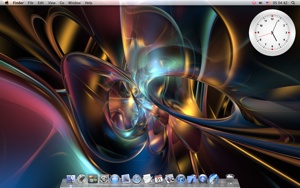By Greg Mills
As I have blogged for some time now, the poorly designed RIM PlayBook is tanking. RIM stock dumped 11% of its value after the market closed yesterday.
RIM has just reported even worse PlayBook launch sales than hoped for; sales that were projected to be in the range of 13 million the first quarter may be way too optimistic. RIM, according to PlayBook teardown parts pricing, ought to make a profit if they could just sell some, but the company seems to be having a hard time convincing even the BlacKBerry faithful they need one.
As avid a BlackBerry fan as Obama is, he carries an iPad. There has to be a good reason to buy an US$500 electronic toy, and no one has a clue as to what that reason might be to buy RIM’s lame slate computer. When you have to tether it to a BlackBerry to get email working, contacts working and other useful apps operating and AT&T won’t support the “bridge” app required, PlayBook is reduced to expensive junk.
Verizon, according to reports, is so unimpressed they aren’t even going to handle the PlayBook. I think I hear the trumpet blowing taps for RIM. Apple recently was found to have a larger market share than RIM.
What the smart phone sales trends tend to show is that the major handset makers have momentum. The trends will tend to continue barring any major gaffs or breakthrough products. Apple and Google’s Android seems to be the only two shows in town for the smart phone market. Windows Mobile, Symbian, Rim and Palm all seem to be collecting the table scraps. A few years back RIM was the smartphone company to beat, and they have been beaten.
What happens next will be interesting. Despite a hardware design that apparently works, RIM’s software is still missing in action. The Android Runtime app expected this summer may be too late in the fast moving saga of tablet computers to save RIM’s hide. The only good thing you can say about PlayBook is that it is absolutely secure. If you can’t put any sensitive data on PlayBook, no one can pry the data loose. What exactly can you do with a PlayBook? Oh yeah, you can watch videos on it.
The smart phone tracking flap may well result in meaningful legislation protecting our mobile data. “CNN Tech” posted an article this morning that made a lot of the same points I have made — that location data privacy has a serious potential to be abused. Half of smartphone users are glibly passing out their location data by downloading numerous location sucking apps, some with dubious needs for that data anyway. Why should “Paper Toss” require your location? Flicking paper balls into a trash can doesn’t seems to me to be an app that really needs to know where you are.
Privacy is never a big issue until it is a very big issue and then it is too late to protect yourself. Ask the victims of the Sony PlayStation Network hack if they were worried about their private information and credit card information they gave Sony before the hack. Most people never think about data security, figuring they aren’t doing anything wrong, so why worry about it. The Sony Playstation victims did nothing wrong but sign up with Sony PlayStation Network and trust the “cloud” with their personal information. They are being punished for that mistake. Sony, by some accounts, could easily blow two billion dollars before their PlayStation Network nightmare is over.
I have been reading a book on data privacy and the actual cost of insecure software to our society written by Davis Rice, an expert on data security and buggy software. Ironically, Apple hired him a while back to head up security of user data for Apple. I hope they listen to him. The book is called “Geekonomics,” It ought to be required reading at Microsoft as well as Apple. Microsoft is famous for selling buggy software that has to be patched continually. That happens at Apple as well, but not intentionally as at Microsoft. One has to figure Redmond knows software they sell is half baked. Patches are cheaper than getting programs right, before you launch software.
My concerns about cloud data storage may soon be more than academic as it appears Apple may use the new Data Centers it has recently built for a new service called “iCloud.” I expect to see sort of a reworked .Mac program where users are encourage to keep all their data and applications in the cloud instead of a local hard drive.
I think this is ironic considering the recent hack at Sony and serious issues with Apple regarding data security fresh in our minds. Hard drives are getting cheaper all the time and even flash memory is coming down. I can’t imagine why I would need to use the cloud and lose control of my data.
I am glad Apple moved to clear up most of the basis for location data concerns and await their software solutions to fix the “bugs” they have admitted.
That’s Greg’s Bite for today.
(Greg Mills is currently a graphic and Faux Wall Artist in Kansas City. Formerly a new product R&D man for the paint sundry market, he holds 11 US patents. Greg is an Extra Class Ham Radio Operator, AB6SF, iOS developer and web site designer. He’s also working on a solar energy startup using a patent pending process for turning waste dual pane glass window units into thermal solar panels used to heat water see: www.CottageIndustySolar.com Married, with one daughter, Greg writes for intellectual property web sites and on Mac/Tech related issues. See Greg’s art web site at http://www.gregmills.info He can be emailed at gregmills@mac.com )




